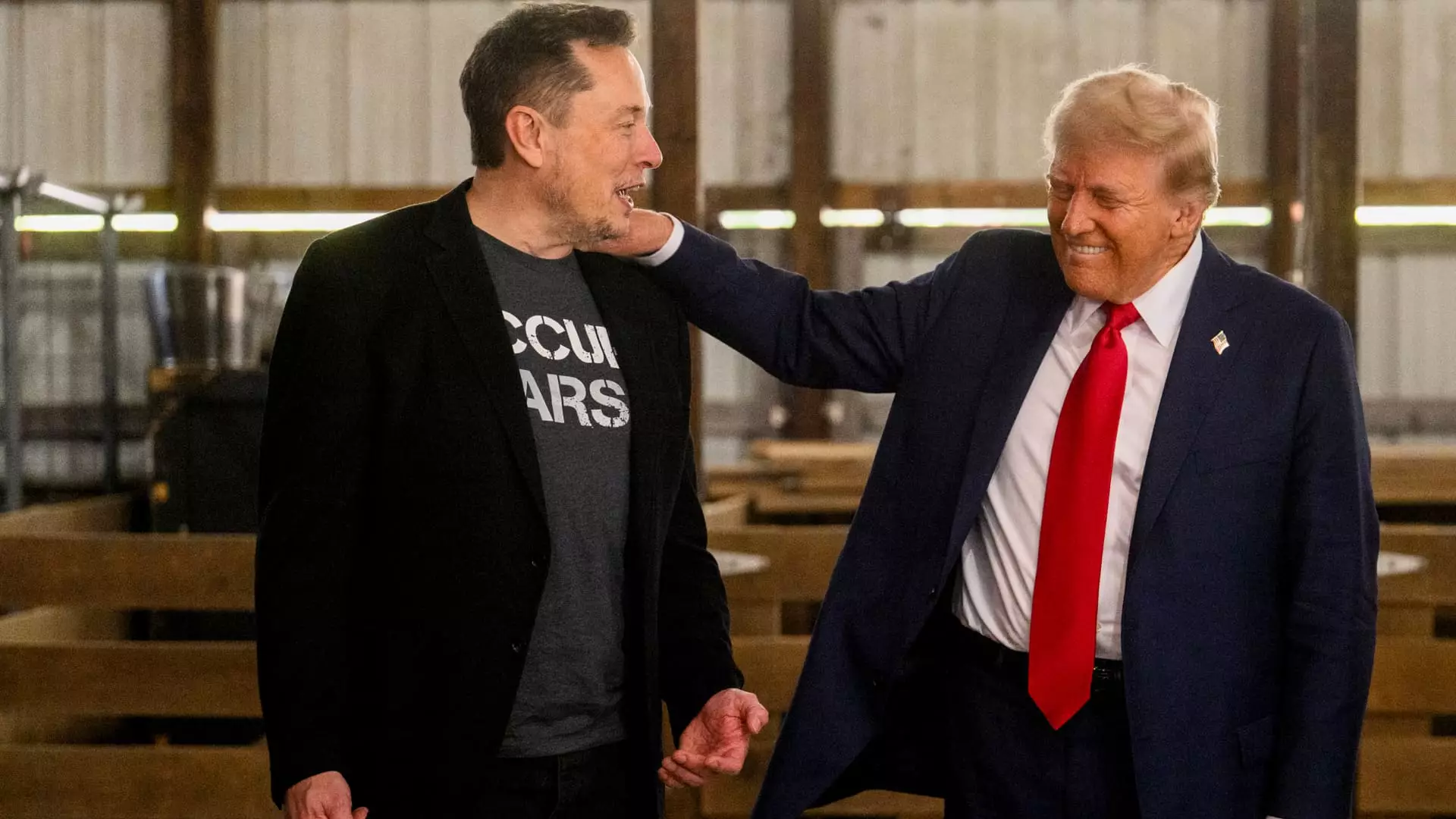On a notable Wednesday, Elon Musk, the polymath known for his ventures in Tesla and SpaceX, found himself in the company of President-elect Donald Trump during the latter’s inaugural meeting with the House Republican conference in Washington, D.C. This gathering marks a significant moment in American political history, showcasing how influential figures from the business world can intertwine with political power. The ability of Musk—ranked as the world’s richest man—to navigate these waters exemplifies the growing bond between tech entrepreneurs and governmental authority.
Musk’s arrival came by an interesting mode of transport: aboard Trump’s private plane from Florida, underscoring the close ties the two have developed. The partnership symbolized by this travel reflects Musk’s increasingly prominent role in Trump’s political strategies and ambitions. Amidst the backdrop of Musk’s Palm Beach stays, where discussions and planning for Trump’s upcoming administration took place, observers noted the entrepreneur’s consistent presence at pivotal meetings alongside Trump.
The highlight of this meeting was the ambitious announcement that Musk, accompanied by entrepreneur Vivek Ramaswamy, would spearhead the “Department of Government Efficiency,” an initiative aimed at “dismantling Government Bureaucracy” and reducing regulations. Musk’s quote, stating that this plan would “send shockwaves through the system,” signals his readiness to tackle perceived inefficiencies within the government. With a reputation for innovation and disruption, Musk’s involvement lends a unique perspective to legislative reform, yet it also raises questions about the implications of such sweeping changes.
The idea of blending business acumen with government operations hints at a vision where traditional bureaucratic structures could be challenged by fresh, unorthodox approaches. However, the efficacy of this approach remains to be seen. The reliance on individuals from the tech sector to lead governmental reforms could signal a departure from established governance norms, making many skeptical about the long-term consequences.
This meeting occurs at a time of notable shifts in the U.S. political landscape. Following the recent midterms, where Republican candidates managed to capture several significant Democratic seats, the GOP is poised to assert dominance not only in the White House but potentially in Congress as well. House Republicans were preparing to hold leadership elections, with Mike Johnson of Louisiana expected to continue his role as Speaker of the House. The air is charged with expectations, particularly as the party is readied to establish new priorities in the wake of their electoral successes.
The gathering carries added weight as it serves as a precursor to Trump’s meeting with incumbent President Joe Biden, a traditional act of decorum reflecting the peaceful transition of power—a stark contrast to the tumult that characterized the aftermath of the 2020 election. It evokes the question of whether mutual respect and collaboration can be the new thematic essence of American politics moving forward or if polarization remains deeply entrenched.
Musk’s conspicuous absence of a traditional political background adds a layer of complexity to these interactions. The union of business success and political strategy raises eyebrows and concerns about the blurring of lines between corporate interests and public governance. With notable figures like Musk once again taking center stage during such pivotal moments, there is a pronounced need for scrutiny regarding how such collaborations will influence policy and ultimately the lives of everyday American citizens.
Additionally, the absence of Melania Trump from the latest engagements hints at the shifting dynamics within the Trump household, reflecting a possible transitional phase as the former First Lady supported her husband from a distance while voicing encouragement without direct involvement. The evolving relationships within the Trump family amid political change can add an unpredictable element to the administration’s strategies moving forward.
As we look ahead to the results of these strategic meetings and their implications, one cannot help but wonder about the impact of Musk’s entrepreneurial mindset on American governance. His involvement illustrates a trend where individuals from outside traditional political backgrounds are asserting influence, which could redefine how policies are shaped and implemented. The intersection of technology, business, and governance invites both excitement and trepidation, prompting advocacy for thoughtful engagement to ensure that reform leads to beneficial outcomes for all citizens, rather than serving niche interests.
The landscape of American politics will undoubtedly continue to evolve as these powerful figures interact and reshape the fabric of governance. As the nation watches this dynamic relationship unfold, it raises critical questions about the future of democratic representation and the role of innovative thinkers in public service.

